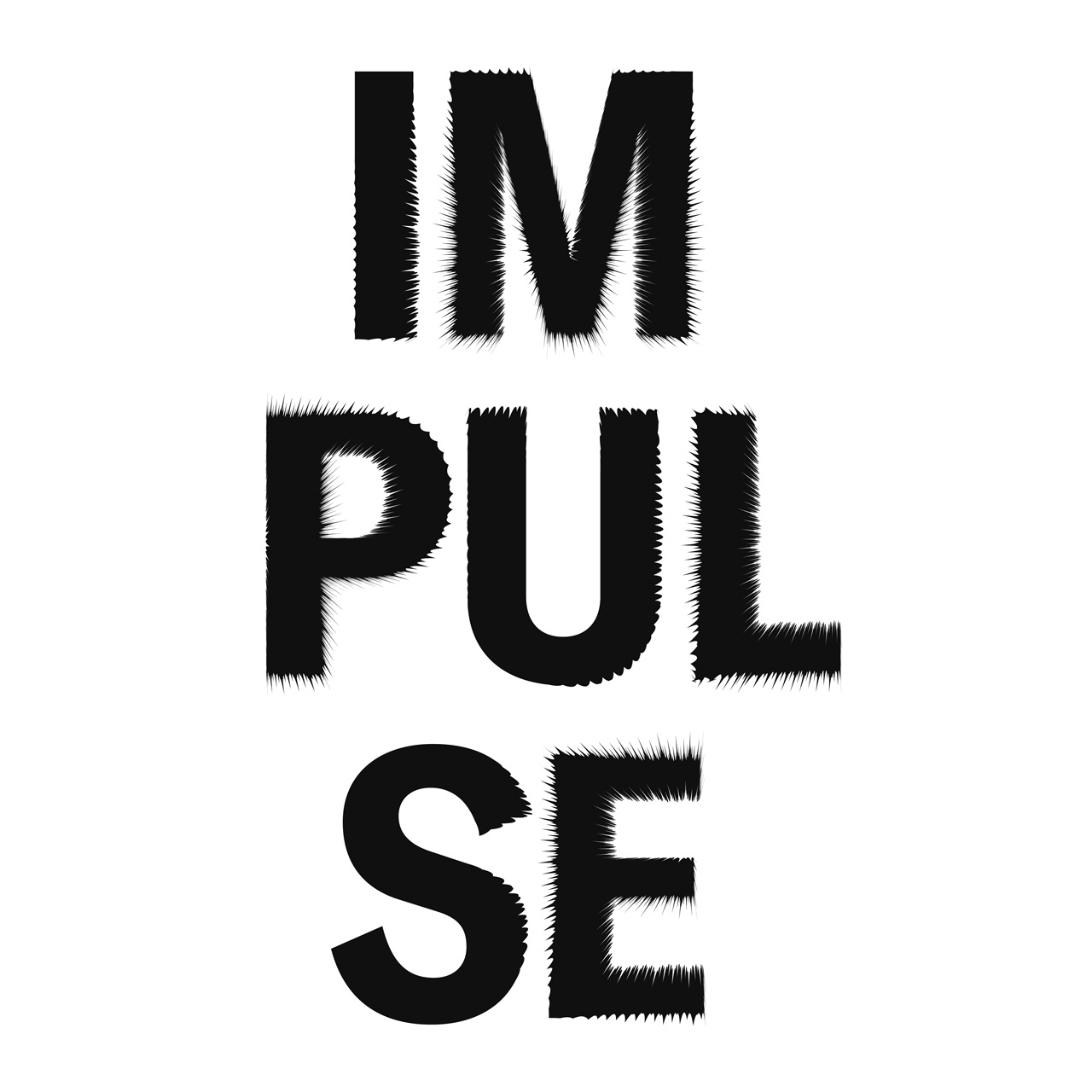ACADEMY #2 — SHOW YOUR CLASS (takes place online in part)
Social Background and Independent Theatre
Led by: Daniela Dröscher
Language: German
Please go here for the online programme of ACADEMY #2.
Social background has an influence on personnel, programming and audiences in the independent theatre – however, this link has rarely been pointed out or discussed until now. The ACADEMY intends to increase awareness of the relevance of “class” by asking: Who gets to speak? Who gets to perform? How are class distinctions presented on stage? And who is watching? Here “class” will consistently be considered in terms of how it intersects with feminist and post-migrant positions. Because there is no conflict between class struggle and diversity – on the contrary. Stages of the independent theatre could become the ideal sites for individuals from a range of backgrounds to practice solidarity and complicity with each other.
A daily conference programme of keynote speeches followed by discussions invites all visitors to the festival to engage directly with the issue of class. In the afternoons four four-day workshops provide intensive working environments to focus on class-conscious (theatre) language, curating and theory. Registration is required for the workshops.
ACADEMY #2 — SHOW YOUR CLASS is funded by the Ministry of Culture and Science of the State of North Rhine-Westphalia (Regional Cultural Policy NRW) and Pro Helvetia, the Swiss arts council.
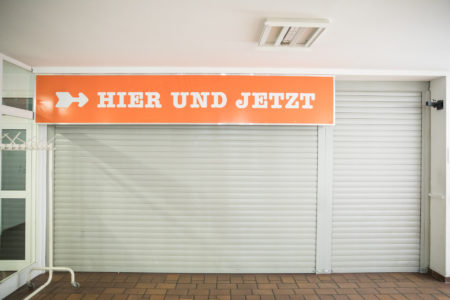
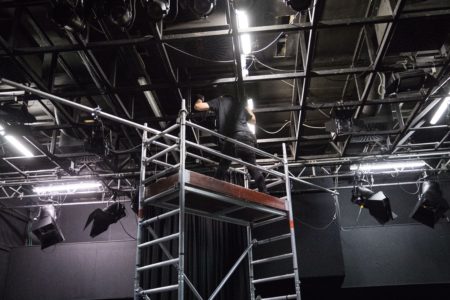
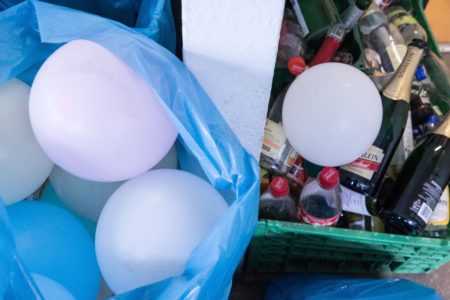
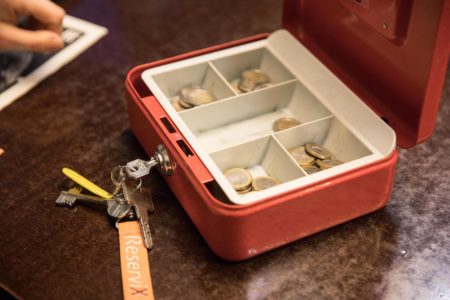
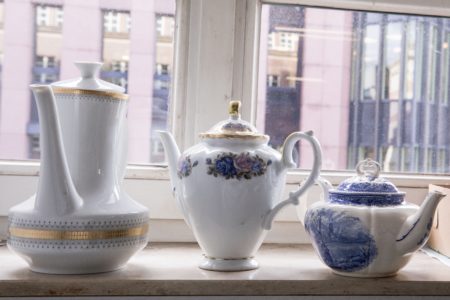
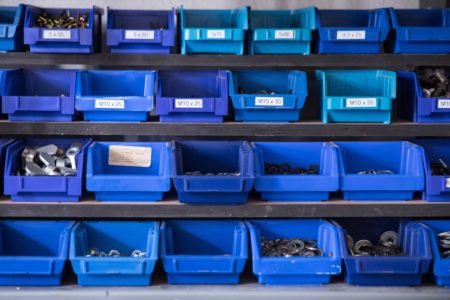
11.06. PERSONNEL
Who makes theatre or: Why we need to talk about class
The ACADEMY starts by turning its attention to those who work in the independent theatre. How strongly does class-ism (i.e. discrimination on the basis of social background) determine access to education, venues and funding? This is an issue that has rarely been raised before in the independent theatre, however, it is significant, particularly in its interaction with race and gender.
10:15 Luise Meier: Prole-mutation
What does class mean in the 21st century? What do we need to think about in new or different terms? Freelance writer, student drop-out and waitress Luise Meier provides an introduction to the basics and from them develops a new understanding of the proletariat: prole-mutation. As “prole-mutants” we can say goodbye to the fetish of the “pure” or “authentic” working class without abandoning its potential for conflict and accumulated experience. This is where our increased potential lies. Instead of setting themselves apart, “prole-mutants” react by mixing and expressing solidarity.
11:00 Sophie Vögele: The role of art education. The potential of diversity and the challenge of classism
The study ‘Art.School.Differences’ aimed to investigate inequality, inclusivity and exclusivity at art colleges in Switzerland and — selectively — to change them. In this lecture, the leader of the project Sophie Vögele focuses on training for the theatre and asks how insights into social class can inform critical Migration Studies.
12:00 Nuray Demir & George Demir: ‘At the Very Top’: undercover in the art world
Nuray Demir and George Demir have spent years exploring social hot spots in the art world. To do so they entered the exclusive parallel society, made observations and gathered material. Now for the first time they will open their suitcase of ethnographic anecdotes and report from A for acne via E for expected inheritance to Z for...
Biographies
George Demir is an artist and a scholarship-holder of the Study Foundation of the German People. He completed his diploma in Media Arts at the Cologne Academy of Media Arts in 2019 and was subsequently awarded the Prize of the KHM Circle of Friends. His practice is located within artistic research. Here he attempts to uncover social imbalances in order to enable those in marginalised positions to have a moment of empowerment and to shift positions of power. His works have been seen at venues including the 1ShanthiRoad Gallery in Bangalore, Paramount Urban Screen in Boston and the State of North Rhine-Westphalia’s office in Brussels.
Nuray Demir is an artist and curator in the field of the visual and performing arts. her practice is characterised by an investigative and radically transdisciplinary approach. For her projects she collaborates with persons from varying disciplines with whom she forms temporary ensembles. She has realised projects at various institutions including Kampnagel in Hamburg, Sophiensæle in Berlin, HAU Hebbel am Ufer in Berlin and the Wiener Festwochen. She currently belongs to the artistic leading team at District* Schule ohne Zentrum in Berlin. Since 2018 she has been one part of ‘Kein schöner Archiv’.
Daniela Dröscher writes prose, essays and stage texts. She studied German, Philosophy and English in Trier and London and completed her doctoral thesis at Potsdam University on the poetics of Yoko Tawada. The themes of her work are the relationship between public and private life and the layering of culture, class and gender. The autobiographical text ‘Show Your Class. The story of my social background’ was published in 2018 by Hoffmann & Campe. She has been involved in theatre productions that have been seen at venues including Ballhaus Ost and the Sophiensæle Berlin.
Luise Meier works as a freelance author and dramaturg in Berlin, having broken off her studies of Philosophy, Cultural Studies, Literature and Social and Cultural Anthropology in in Berlin and Frankfurt (Oder). She has written essays of cultural criticism on topics including capitalism, the women’s movement, ‘The Brothers Karamazov’, drones, terrorism, Rosa Luxemburg and Valeska Gert for the Volksbühne am Rosa-Luxemburg-Platz, Freitag, jungle world, Theater der Zeit and the Berliner Zeitung. In 2018 she published her book ‘MRX Machine’. She has regularly worked together with the HAU Hebbel am Ufer Berlin, recently creating the evenings ‘KEEP IT REAL’ and ‘Schleefian Excrescence’ there. She is currently working with the choreographer and performer Jule Flierl, the performance collective andcompany&Co and the director Christian Filips.
Sophie Vögele studied Gender Studies and Ethnology in Basel, Geneva and Heidelberg. She was subsequently affiliated for several years to York University Toronto (Sociology). She is currently a research assistant and lecturer in Art Education at Zürich University of the Arts. In her research she is interested in the complexity of processes of othering in educational institutions and in the field of art, their criticism and institutionalised mechanisms of inclusion and exclusion from a feminist-post-colonial perspective. In her blog (bit.ly/a_s_d) she reports on her experiences in developing participatory curricula and universities.
12.06. PROGRAMMING
How does independent theatre engage with the issue of class?
The second day, the ACADEMY examines the independent theatre’s programming. For all the diversity of the independent scene, is it possible to make out shared perspectives on the issue of class or even simply on class as a topic? What does looking back at history reveal? What are the class-conscious aesthetics of the present day? What are the sticking points in the attempts to see class as an intersectional issue?
10:00 Anja Quickert: From the APO to post-migrant theatre
Critic and dramaturg Anja Quickert has examined the history and present of the independent theatre by looking at the issue of class: How does it engage with social background and/or class (differences)? What are the recurring themes? What is omitted and why? And is there a specific class-conscious aesthetic?
10:45 Francis Seeck: Distinction. Classism and cultural work
Cultural anthropologist, gender researcher and anti-discrimination trainer Francis Seeck subjects programme booklets from the independent theatre to a close reading: what languages are being used here? Who is welcomed, who is excluded? And what is the relationship between queerness and classism?
Biographies
Anja Quickert studied Theatre Studies, Modern German Literature and Philosophy in Mainz, Bologna, Warsaw and Berlin. As an author she writes freelance for ‘Theater heute’ and other outlets, as a dramaturg she has also worked freelance and at the Volksbühne am Rosa-Luxemburg-Platz. She has been the Chief Executive of the International Heiner Müller Association since 2011. She has been responsible for producing the events series ‘Müllermontag’ (2012—2016) and ‘Müllersalon’ (from 2017), has worked as a dramaturg and production manager on various of the Association’s workshops, co-directed the international conference ‘Das Rätsel der Freiheit’ (“The Enigma of Freedom”) on Heiner Müller and the theatre festival ‘Heiner Müller!’ at the HAU. Since 2018 she has participated in the DFG research group ‘Constellations of Crisis in the Arts’.
Francis Seeck is an anti-discrimination trainer, author and doctoral candidate who teaches Gender and Queer Studies in Social Work at the Alice Salomon University of Applied Sciences in Berlin. Francis Seeck is also active in the Institute for Classism Research, a network of academics and political educators from an impoverished or working class background. ‘The Right to Mourn. Funerals from a power-critical perspective’ was published in 2017, in which Francis Seeck looks at the connection between classism and practices of mourning.
13.06. AUDIENCE
Who are we making this for?
After personnel and programming we focus on audiences. Who do independent theatre productions reach? Which working methods and aesthetics in themselves address audiences irrespective of class? Which ones use subtle distinctions to keep them at arm’s length? And how can theatre reach an audience that can then actually see its own perspective represented on stage?
10:00 Eva Plischke (Turbo Pascal): UNTERSCHEIDET EUCH!
Which performative tools do I use to represent the issue of class on stage? What role does participation play? What is the audience’s role? An insight into the devising process of the children and young people’s play UNTERSCHEIDET EUCH! which can be seen in the Impulse SHOWCASE.
10:45 Eylem Sengezer and Sandrine Micossé-Aikins (Diversity Arts Culture): More than financial capital – classism in the cultural sector
Which people attend the theatre depends to a large extent on those who make theatre. This completes the circle with the issue of personnel. Diversity Arts Culture has investigated why, despite all the attempts to diversify the cultural sector, so many practitioners end up abandoning the cultural sector. What roles do racism and classism play here? How are the two played off against each other? Where are their similarities, differences and intersections?
Biographies
Sandrine Micossé-Aikins is an art researcher, curator and equity manager, whose work focusses on racism and empowerment in art, the effective power of colonial images, body politics and representation and equality in the German-speaking artistic and cultural sphere. Since 2017 she has run Diversity Arts Culture, a source of ideas and advice on developing diversity that seeks to make art and culture accessible to all and to break down barriers to bring exciting arts from a range of perspectives into cultural institutions.
Eva Plischke is a co-founder of Turbo Pascal and completed her doctorate at the Graduate College of Arts and Sciences ‘Assembly and Participation – urban public life and the performative arts’ in Hamburg. Turbo Pascal devise interactive performances that turn the theatre into a space to come together and negotiate social processes, dynamics and utopias. Turbo Pascal also produce participatory projects with adults or children and conceive formats for discussion and communication in diverse contexts. ‘Make Your Mind Up!’, Turbo Pascal’s first interactive performance for children at the Theater an der Parkaue in Berlin, was the winner of the Ikarus Prize for 2019.
Eylem Sengezer is the advisor on access processes for cultural institutions at Diversity Arts Culture. She studied Modern German Literature, Art History and Film Studies. She has co-ordinated numerous projects for the Haus der Kulturen der Welt and also worked as a freelance creative and curator for the DHM, the nGbK, the Gay Museum in Berlin and the Centro de la Imagen in Mexico City. She has been a jury member for Friedrichshain-Kreuzberg’s district cultural fund. As the advisor at Diversity Arts Culture she advises cultural organisations and, together with Toan Nguyen, co-ordinates access processes at Stadtmuseum Berlin and the Theater an der Parkaue.
14.06. SO WHAT DO WE DO NOW?
Day four clears the stage for the results of this year’s ACADEMY. What can we take away from three days of work on class consciousness? Which processes have been stimulated, which have not received sufficient attention? Where does the issue of class in the independent theatre go from here?
What are the (cultural) political and aesthetic consequences of our ideas?
10:00 Frederick Krieger and Samira Weiner: observations, discoveries, questions
Frederick Krieger and Samira Weiner from FFT Düsseldorf have been following the events in the Academy. To conclude they describe their subjective discoveries and open questions and offer these for discussion.
11:00 Concluding forum
The workshop participants and interested festival visitors come together in a plenary forum that provides an opportunity for them to use their experiences from the three days of the Academy to respond to the observations that have already been made and expand on them with ideas of their own.
Biographies
Frederick Krieger studied Theatre Studies and Social Sciences at the Ruhr University Bochum and took part in numerous student and independent theatre productions. From 2015 to 2018 he worked as an assistant director at Schauspielhaus Bochum where he worked with Olaf Kröck, Roger Vontobel, Jan-Christoph Gockel, Marius von Mayenburg, Heike M. Götze and Anselm Weber. He directed Sartre’s ‘No Exit’ at Schauspielhaus Bochum in 2018. Since 2019 Frederick Krieger has been Assistant to the Artistic Director and Chief Executive at FFT Düsseldorf.
Samira Weiner studied German and Theatre Studies at the Ruhr University Bochum. From 2013 to 2015 she worked as an assistant director at Schauspielhaus Bochum, moving in 2015 to become an assistant director at Düsseldorfer Schauspielhaus. From 2016 to 2018 she was Assistant to the Artistic Direction of the Bürgerbühne at Düsseldorfer Schauspielhaus and was production manager for the Asphalt Festival in Düsseldorf. During her time working as an assistant she ran several youth clubs. Since 2019 she has worked at FFT Düsseldorf in the artistic production office with special responsibility for projects with children and young people.
11.–14.06. Workshops
LANGUAGE
Distinctions
Oleg Zhukov (writer/performer, subbotnik) and Özlem Özgül Dündar (writer)
While narrating and writing we search our biographies for snapshots and turning points. We specifically examine the medium of language in this process. Language often reveals where we come from. Do we use this or that linguistic tool consciously or unconsciously? And do we use it to demonstrate or to deny where we come from or alternatively who we (now) are? Based on what we are told, we develop (dramatic) texts in between truth and fiction.
Biographies
Özlem Özgül Dündar lives in Leipzig and Solingen, studied Literature and Philosophy in Wuppertal and subsequently at the German Institute for Literature in Leipzig. She writes poetry, prose, scenic texts and essays, performs as part of the collectives Kanak Attak Leipzig and Ministerium für Mitgefühl as well as working as an editor and translator. She was recently awarded the Kelag Prize in Klagenfurt and the Rolf Dieter Brinkmann Scholarship for 2018. Her volume of poems ‘straining thoughts’ was published in 2018 by Elif Verlag.
Oleg Zhukov is an actor, director and playwright who lives and works in North Rhine-Westphalia. In 2012 he founded the artists’ collective subbotnik together with Kornelius Heidebrecht and Martin Kloepfer. Subbotnik combines vocal and instrumental compositions with narration and live performance to create its own original stage language. Oleg Zhukov was awarded the City of Viersen Prize for Literature for his text ‘LUSTDORF 1992’. In 2012 he was granted a scholarship by the Literarisches Colloquium Berlin. Oleg Zhukov wrote the stage play ‘Nordstadt’ for the Westfälische Landestheater’s literary competition ‘In Zukunft’.
CURATING
ZINE-making as a solidary practice
Felizitas Stilleke (curator/dramaturg) and Max Gadow (theatremaker, virtuellestheater)
In a collective act of ZINE-making we jointly question each morning’s lectures and the Impulse 2020 programme. What do we wish to reinforce, overwrite or extend conceptually? What about them inspires us to class-conscious deeds and positions? In three groups that are thrown together afresh each day, we collectively put together a ZINE day by day. The ZINE has no hierarchies, the ZINE is based on working collectively. The ZINE works with scissors, paints, glue, photocopiers, stickers and sellotape. Our time will be guided by listening, speaking and making. No experience is required. Joyful activism is encouraged!
Biographies
Max Gadow is a freelance artist and theatremaker. He is part of the artists’ conglomerate virtuellestheater that was founded in 2015 by six artists from Hamburg and Berlin. He studied theatre directing at the HfS Ernst Busch in Berlin and at DAS theatre, the theatre academy in Amsterdam. In his work he focusses on examining Western myths and power structures, deriving performative processes from these which then become parts of the work of virtuellestheater. Pop culture, new media and technologies are regularly hybridised with aspects of canonical culture and what is created are usually open, barely repeatable formats using all the means at art’s disposal.
Felizitas Stilleke is a freelance dramaturg and curator. She leads conferences, most recently Branchentreff 2019, works as a dramaturg for festivals (Berliner Theatertreffen 2018, Impulse Theater Festival 2017 under Florian Malzacher, FAVORITEN 2014 with Johanna-Yasirra Kluhs) and operates as a production dramaturg at various venues in NRW and Berlin. In 2018 and 2019 Stilleke was responsible for the emerging artists’ platform ‘Introducing …’ at the Performing Arts Festival Berlin and she is also a member of the advisory committees to Fonds Darstellende Künste and Kunststiftung NRW. She studied German/Education Sciences in Bochum, Cultural Poetics in Münster and ‘Expanded Curation’ at DAS theatre in Amsterdam in 2018/19.
THEORY
Performance. Power. Class.
Mehdi Moradpour (writer/dramaturg) and Robert Jende (sociologist)
In the workshop we will read texts about performativity, class consciousness and utopian realism taken from philosophy, sociology and theatre studies. Using examples from theatre and artivism we will examine the performative power of class relations, the productive power of theatrical action and their potential effects on social transformations.
Biographies
Robert Jende studied Sociology and Philosophy in Jena and has been an academic advisor on the project ‘RePair Democracy. Social innovations as an experiment in democratic micro-practices’ at Munich University of Applied Sciences since 2018. In 2018/19 he taught and researched at FSU Jena on the project ‘Building societies together. Performative sociology as research in public actions’ in co-operation with the Echtzeit Architektur Festival 72 Hour Urban Action, publishing a collaborative monograph with the students on ‘public sociology in action’. In 2019 he completed his dissertation entitled ‘Change society! Contours of a performative sociology’ at FSU Jena.
Mehdi Moradpour began to study Physics and Industrial Technology in Iran and subsequently studied Spanish Literature, Sociology, American and Arabic Literature in Leipzig and Havana from 2004 to 2011 and Scenic Writing in Graz from 2014 to 2016. Since 2012 he has worked as an interpreter for Farsi, Dari and Spanish in the court system and in the community. His theatre work has taken him to the Maxim Gorki Theater Berlin, Deutscher Oper Berlin, the Wiener Festwochen and the Grips Theater Berlin. His theatrical texts have been awarded several prizes including the Christian Dietrich Grabbe Prize (with Clemens Mädge), the WIENER WORTSTAETTEN’s Prize for a Dramatist in Exile and the Jury Prize of the playwriting competition in St. Gallen and Konstanz.
AESTHETICS
Check your luggage! Class in participatory post-migrant theatre
Nora Haakh (writer/dramaturg) and İlker Abay (actor/director)
What privileges or burdens lie inside the knapsack we start off in life with? What class distinctions do we have to overcome along the way? What role is played by being multi- or mono-lingual? What do we stumble over when we attempt to participate in society? And which aesthetic forms do we stumble over in the theatre? The participants are invited to bring three objects with them that they always keep with them. In a playful experiment we will explore together which of these three objects they want to keep.
Biographies
İlker Abay is a filmmaker, producer, actor and director who has taken part in international festivals including Cannes, Rotterdam, Milan and Thessaloniki. The majority of his films concentrate on themes of the post-modern world such as identity, alienation, death and the family as well as individuals with their weaknesses and tragicomic inhibitions. In ‘Supermen’, which was produced at Ballhaus Naunynstraße in Berlin by Idil Üner and the ensemble, he tells stories on stage from his personal autobiography.
Nora Haakh is a Berlin-based Islamic scholar and theatremaker. She focuses on political theatre between post-migrant Europe and the Arab-speaking region. She studied Arabic, Islamic Studies, Politics and History in Berlin, Paris, Istanbul and Cairo. Since she graduated she has worked as a freelance dramaturg, predominantly at the post-migrant theatre Ballhaus Naunynstraße, Berlin. She has worked together with directors such as Lukas Langhoff, Neco Çelik and Branwen Okpako and playwrights including Marianna Salzmann and Deniz Utlu (Angry Birds). She has already created several works in collaboration with the playwright and director Nora Abdel-Maksoud, including ‘Kings’ which was invited to the festival Radikal Jung in 2015.
